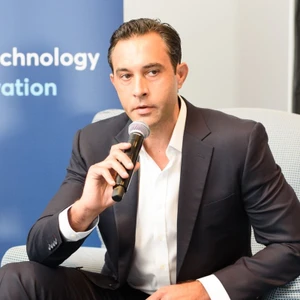Investment Climate | Predictions 2023
Going into 2023, how has the macroeconomic climate, and in turn access to funding and capital, changed for the industry?
Interviewees
Tom Waterhouse, founder and chief investment officer, Waterhouse VC
Jonathan Pettemerides, managing partner, Kyprock
Mohit Kansal, partner, Clairvest
Tom Waterhouse: In November, the US Fed increased the target range for the federal funds rate by 0.75% to 3.75%-4%. Across the world, the cost of capital has risen rapidly to combat high inflation. This impacts the spending and investment decisions made by all households and businesses.

Several loss-making wagering industry businesses have reduced their marketing activities, with a stronger focus on profitability. In contrast, profitable operators, such as Flutter, are able to take advantage of the challenging macroeconomic climate by maintaining elevated marketing expenditure to gain market share.
Jonathan Pettemerides: Over the last year, we have seen the SPAC market largely fizzle out and debt becoming very expensive in recent months, reducing the likelihood of large scale M&A unless the acquiring business has significant cash on the balance sheet. From a venture capital perspective, there is a real mix of scenarios.
Some investors within the sector do have dry powder to invest but outside money for regulated gaming ventures is becoming more scarce. All parties are waiting for valuations to come back down to more realistic levels. Notably angle investments in periphery areas, especially in web3 and emerging technologies appear relatively unaffected to date.
Mohit Kansal: There has been a sea change in the climate from a year ago and uncertainty remains going into 2023. For more speculative or early-stage companies or those chasing growth markets like the US, there’s been significant investor shift in interest. This is no different to other industries including software firms whereby venture capital has dried up and valuations are down.
Less obvious to those not in the sector is the ripple effect of rising interest rates that has resulted in capital being more costly and difficult to get, which is resulting in a higher hurdle for investors or putting some on the sideline. In general, a year ago for an investment round, there would be many equity and financing firms chasing each opportunity, now, it’s few and targeted with most re-trenching to what fits “their box”.

Are investors now less speculative, and more eager to invest in a “sure thing”’?
JP: Our experience is that depends on the level of investment. Angel investors appear just as likely to invest a smaller cheque and take a punt on a peripheral emerging opportunity. We do see early stage businesses in the space struggling to close investment at their valuation point and founders need to appreciate the macro-economic climate.
At Kyprock we believe there is a sector-wide investment opportunity gap at series A-B, to provide active growth capital into ventures who have proven their business model and would benefit from operational support to scale, with an average cheque size of $5m-$10m. Risk remains around any investment, and while some ventures would have a sure thing in a certain territory, it isn’t necessarily a recipe for success globally.
Our thesis is squarely pointed towards the regulated gaming sector, yet naivety remains from those solutions serving unregulated markets, with little understanding of the entry barriers into highly regulated markets including those in North America.
MK: Yes. Investors have their individual strategies so early-stage investors will still be looking at speculative deals, however, the practices of “stretching” on more risk and higher values are no more.

As cost of capital has risen (interest rates and risk), investors must shift their approach to yield that higher cost of capital which means less capital invested for the same or more return. This is resulting in a focus on proven business models and cash-flow.
TW: Investors are certainly less speculative and are now increasingly focused on profitable businesses. Many of the US wagering operators are spending heavily to gain market share, sacrificing profitability in the process.
Investors have punished this behaviour by discounting the valuations of loss-making operators in favour of profitable operators, such as Flutter. Flutter is the only operator out of their peer group that has generated a positive return for investors over the past 12 months and is our only portfolio holding in the group.
One of the reasons why we focus primarily on suppliers to operators rather than on the operators themselves is because operators are highly dependent on their customer acquisition cost (CAC) and require large marketing expenditure.
In mature, highly taxed, regulated markets, a handful of operators earn the majority of profits because they have the lowest CAC and the best operational efficiencies. While the large operators in mature markets are not “sure things”, they carry much lower investment risk than loss-making operators.
What products or technologies do you think are overhyped, and what will become of these in 2023?
MK: I think a lot of “overhyped” products and companies have seen their day over the past six months. Whether it was an early-stage crypto firm or the thirtieth new entrant to the United States who would get 5% market share, these firms are now taking a different path than they did earlier in the year.
I fundamentally believe in the long-term of the gaming sector – form of escapism, immediate gratification, faster/bigger/more engaging devices, and much-needed tax revenue. This downturn is healthy, and I believe fundamentals were being ignored for too long. I am optimistic that the strong will survive and thrive, and we will be a more successful industry for it.
TW: For the most part, there is minimal product differentiation between wagering operators, with minor differences in user experience. Wagering sites have maintained a consistent layout for decades, typically featuring promotions at the top, then providing high level navigation to the most popular sports and racing.

While we do not believe that “social betting” is overhyped, we believe that it will become highly competitive in 2023. By bringing together social media and wagering, bookmakers hope to improve customer retention and lifetime value. Social betting also plays into the growth of influencers and influencer marketing, with respected bettors able to build large followers who can copy their bet.
In May 2021, Australian operator, Sportsbet, launched their social betting product – “Bet With Mates” – which allows bettors to pool their bets into one group and invite friends to share in the bet. Ladbrokes Australia followed suit with “Mates Mode”, while there are some operators, such as Dabble, which are completely focused on social betting.
If social betting becomes very popular, it is likely to be a feature of most major operators. However, unlike most products, social betting benefits from network effects comparable to traditional social media (Facebook, Twitter, etc.). This insulates operators like Dabble from the far larger marketing budgets of the major operators.
JP: There are plenty of great entrepreneurs building good products and it would be wrong to say they are overhyped; it is often down to timing and our sector is typically slow to embrace new technology. Some products are often independently great solutions but the true value is never realised by operators not working to an aligned customer experience-led roadmap.
At G2E in October, “cashless” was the standout buzz word and there were plenty of vendors offering cashless solutions. If you dig deeper, few provide genuine frictionless customer experience which unify casino touchpoints or work across channel and they actually provide additional and unnecessary hurdles for the customer to jump over. I think that is one area which will shake out with the longer term winners understanding that a wallet alone isn’t enough, it is a critical foundation enabler of a bigger customer proposition.
Likewise there are plenty of companies claiming to have unique products in areas such as micro betting but few appear to have a genuine point of difference. In both cases there is a broader customer acceptance curve to scalable revenue and it will be those that can stay the course through 2023, that will thrive in the years to come.


